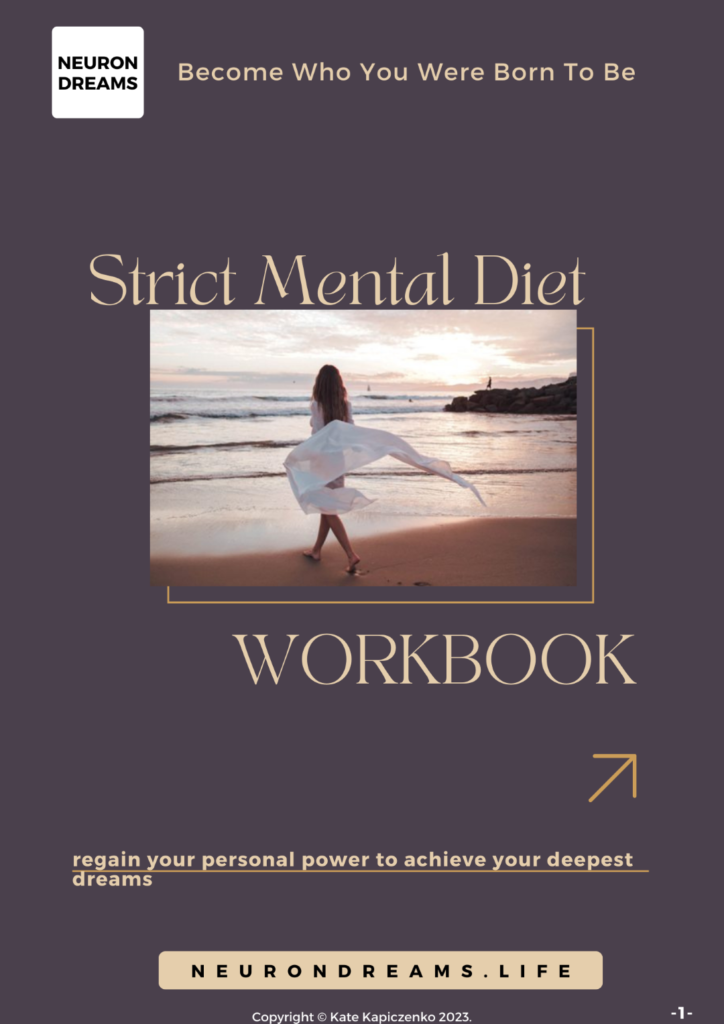How To Become Money Conscious
Reaching financial stability and being debt-free is the most liberating feeling in the world. And if you think that you need to earn tons of money every single month to achieve that, you’re wrong. But it does not mean that your personal financial situation will magically improve just because you want it. You will have to become money conscious, learn the difference between needs and wants, practice self-discipline and improve your self-control. It may sound difficult but it is actually much easier than it sounds. All you need is a good plan, an operative strategy, and some effective tools that will help you to become financially stable within the next months. So without any further ado, here are 10 steps to become money conscious and start saving money from scratch!
You Will Learn How To:
💠 Create A Successful Budget
💠 Set Short-Term & Long-Term Financial Goals (Mood Board)
💠 Decide The Ideal Percentage of Monthly Earnings to Save (Saving Goals)
💠 Use Budgeting Tools & Financial Apps
💠 Adopt Saving Money Habits
💠 Understand The Difference Between “Needs” & “Wants”
💠 Practice Self-Control & Self-Discipline
10 Simple Steps To Achieve Financial Freedom
1. Evaluate Your Personal Financial Situation
The first step in becoming financially stable is to evaluate your current financial situation. Because without knowing exactly where you stand with your personal finances, you will not be able to create a successful budget, set realistic financial goals and stay fully committed and inspired to achieve them.
However, you should know that, if you’ve never analyzed your financial health before it may cost you a little bit of stress but trust me, it is well worth the time and effort. This simple act of evaluating your current financial situation will help you to understand what has to be done in order to reach financial freedom you’ve been dreaming of so much. So take a piece of paper and write down your biggest financial sources of stress so you know what you’re up against. Then calculate your total monthly income and expenses. If you have a mortgage, student loan or credit debt don’t forget to add it to your financial review. And remember that if you’re currently struggling with your finances that’s OK.
We are all faced with financial challenges at some point in our life. But fortunately, most of the financial problems can be solved with some effective planning and strategic preparation. So, if your current financial situation is not the best one, don’t beat yourself up. Instead, adopt a positive mindset, prepare for some great tips and start your journey towards financial freedom!
2. Use Budgeting Tools & Financial Apps
Now, once you’ve evaluated your current financial situation it’s time to gain control over your money. And what better and easier way to do that by using budgeting tools and financial apps? As much as I love old-school methods for planning, organizing and controlling different spheres of my life when it comes to my finances I rely on mobile technology. In my personal opinion, it’s the easiest and most effective way to manage your money especially if you generate different sources of income and your expenses are variable. But if you prefer to budget your money, control your spendings and track your savings using traditional methods aka writing everything down in your notebook you can do that. BUT with these budgeting tools and financial apps, the whole act of gaining control over your personal finances will be much easier, less time-consuming and definitely much more enjoyable!
Best Apps To Manage Your Finances
- Qapital here – Banking designed with your goals in mind
- Wally here – professional expense report app
- Mint here – saving and budgeting app
- Digit here – saving app
- Every Dollar here – budget tool and expense tracker
- Acorns here – saving and budgeting app
- You Need a Budget here – create a budget within your actual income
- Prism Bills&Money here – organizing and paying bills app
- Bill Watch here – managing, organizing and reminding bills payment app
- Albert here – saving, budgeting and paying a debt app
- Tycoon here – Freelancers app
- Personal Capital here – investment optimization app
- PocketGuard here – extra money spending app here – categorizes and organizes your expenses, monthly bills, and subscriptions
- Travel Wallet iOS / Android – travel budget and expense app
Best Apps To Save Money On Shopping
3. Create A Successful Budget
I fully agree that being spontaneous is a great ability that enables us to make the most of every situation we face in life while planning out every detail to the nth degree can be quite boring, monotonous or even counterproductive. A little chaos DOES make life more interesting, exciting and fun BUT not when it comes to making financial decisions, staying out of debt and saving money. The only effective way to achieve these things is to create a successful budget. So if you want to be financially stable, avoid questionable financial decisions and save a substantial amount of money in a relatively short period of time you need to set a realistic budget ASAP. You can easily do it by using budgeting tools and financial apps I mentioned in the previous paragraph or by downloading Budget Template and create your own budget in Excel.
Steps In Creating A Successful Budget:
- Calculate your monthly income
- Determine your monthly expenses (fixed and variables)
- Divide your expenses into different categories to know where your money goes
- Decide the ideal percentage of monthly earnings to save
- Decide the ideal percentage of monthly earnings to put into your Emergency Fund
What Should Be Included In Your Budget
Budget Template
Budget Template HERE
You Might Also Like
4. Set Financial Goals
Once you’ve evaluated your personal financial situation and you’ve managed to create a successful budget you can finally set your short and long term financial goals for a better and more financially stable future. Yay, Hooray, Woo-hoo!!! How exciting is that?! Now, you’re only one step away from improving your financial situation and achieving the financial freedom you’ve always dreamed of! Isn’t that great? Just think about all that money you will be able to save for the stuff you’ve always wanted to buy but you couldn’t afford them! I bet you already know what you want to save for. And if you want to make the whole process even more exciting you should create a vision wealth & mood board to visualize your short and long term financial goals. A vision board will help you to stay committed and inspired to achieve your financial goals! Not to mention that if you put some effort into creating your vision wealth and mood board you will create an inspiring piece of art that will fuel your motivation every single time you look at it! If you’re ready to visualize your future financially stable self here are some tips that will help you to achieve that!
Set Challenging But Realistic Financial Goals
💠 Specific
💠 Measurable
💠 Achievable
💠 Realistic
💠 Time-bound

Create A Vision Board

Make A Vision Board That Works:
- Define your purpose
- Discern your intentions
- Dream big but keep it realistic – set challenging BUT achievable short and long-term financial goals!
- Set SMART financial goals for personal growth (self-improvement goals are the key to unlocking your full potential by giving you a real possibility to evolve in a better version of yourself and align your life with your core values)
- Be selective on what you want to put on your vision board (it should create focus, not chaos and disorientation)
- Find capturing images and inspirational quotes that you will add to your vision board to make your motivation flow effortlessly every single time you look at your vision board (do your research using the internet, find images and words that perfectly illustrate your short-term future, print them out and stick them onto your vision board)
- Start creating your highly-personalized vision board that will create excitement and enthusiasm every single time you will see it
- Place your vision board somewhere that you can see it (my vision board is above your desk)
- Set the right mindset (Be your own cheerleader)
5. Cut Down Unused Luxuries & Money Wasters
Let’s talk about the recurring charges you completely forgot about but you’re still paying for every single month. Just think about all these companies you gave your bank account number and permission to automatically withdraw money from your bank account to keep your monthly subscription and ask yourself how much money you spend every single month for services or memberships you don’t use. Monthly it might not seem like much money but an annual cost of all these completely forgotten and useful subscriptions can make you feel dizzy. So if you want to stop wasting your money and regain control over your personal finances it’s time to cut off all unnecessary expenditures. Just think about how much money you will be able to save if you stop paying for stuff you don’t want or need!
6. Create An Emergency Fund
Well, we love to think that nothing bad will happen if we just keep thinking positively but when it comes to unforeseen expenses you really want to be prepared. Because let’s face it, life is unpredictable and unexpected events do happen whether you like it or not. About a month ago my laptop suddenly stopped turning on. First I thought that it’s just a minor problem that can be easily fixed but unfortunately, it wasn’t the case. When I took my old but very much loved laptop to the computer repair shop it turned out that it wasn’t just an emergency. My laptop was dead. There was not a single indication of life. Fortunately, I have an emergency fund and I could buy a new computer later that day. Otherwise, I would have borrowed some money from my friends and I really hate doing that. So if you haven’t created your emergency fund yet I highly recommend you do so. You never know when you will need to spend some extra money to cover the financial surprises life throws your way.
7. Know The Difference Between Needs & Wants
Knowing the difference between needs and wants means having control over your spending and make rational purchases. Let’s face it, the temptation is everywhere. Advertising manipulates our purchase choices and spending habits just like marketers compete to create artificial needs that have to be fulfilled immediately and at any costs which only encourages us to mindlessly spend our money. The easiest way to avoid that is to take a deep breath, think about if you really need this product or service and how it will make your life easier and more comfortable. And then ask yourself if you really want to buy it. Be attentive. Be in control.
Healthy Shopping Habits
- Make Conscious Consumer Decisions based on your real needs, not artificial ones invented by marketers to trick you into buying more things
- Plan Your Purchases (always make a shopping list, use shopping apps, search for discounts, coupons, and special offers)
- Set Your Shopping Budget (decide how much you can spend)
- Avoid Compulsive Shopping
- Shop Intentionally (identify the factors that influence your purchasing habits)
- Resist Buying The Things only because they’re on SALE

8. Have NON-SPEND Day or Days
I love the idea of “Non-Spend Day”. First, it was more like a challenge aimed to rethink my shopping habits, learn the difference between needs and wants and become a more conscious consumer but after a while, it became a solid part of my routine. Honestly, I didn’t even realize how much money I was mindlessly spending on things that I didn’t even want or need. I used to buy one or even two coffees every single day, some groceries and of course takeaway food. Not to mention buying a completely useless home decor that only cluttered my house. It’s really hard to resist not buying super-cheap items from IKEA. But ever since I implemented non-spend days (Monday-Thursday) into my weekly routine I not only have full control over my finances but also I don’t buy unnecessary stuff only because I like them. That’s why I highly recommend you have this non-spend day once, twice a week and really commit to it. Of course, it does not always have to be the same day of the week because it may not be attainable but try to have at least one day a week where you hold back from purchasing anything. Make it a fun challenge, commit to it and then build a rock-solid habit!
You Might Also Like
9. Start A Side Hustle
Probably one of the best financial advice you can get is to diversify your income sources. Having a steady job is great, but earning extra income aside is fabulous! Having a side hustle will help you to maintain your financial stability and reach your short-term and long-term financial goals faster and more easily. That’s why I highly recommend you to look for new, creative ways to earn extra money. Maybe you have some books or clothes to sell? Or maybe you have the talent to create unique handmade gifts you could sell? And if you are self-employed or you have a hobby you could easily monetize you should search for job opportunities online. You should really give it a try! And maybe, in the near future, your hobby will become your main source of income!
Side Hustle Ideas
10. Self-Control & Self-Discipline
Self-control means self-discipline. And self-discipline is a key to success. Most people think that it’s the motivation that creates results so instead of taking action towards their goals they waste their time and energy waiting for motivation and inspiration to strike them. But the truth is without taking intentional action no result can be created. In other words, what you really need to achieve your goals is self-discipline, not motivation. While motivation is important it does not guarantee success because it’s not consistent. Of course, you can easily increase your motivation but still, it will be only a temporary boost rather than a permanent state. In contrast, self-discipline is nothing more than a habit of consistency. So if you are trying to plot your path to success you should focus primarily on building self-discipline. Certainly, building unbreakable self-discipline requires time, effort and patience but it definitely worth it. Self-discipline means control of your action, commitment to your goals, avoiding distractions, increasing your focus and boosting your productivity. Furthermore, it helps you to stick to your decisions and pushes you forward despite countless obstacles, difficulties, and failures.
Simple Ways To Practice Self-Discipline
💠 Live Within Your Means
💠 Stay Away From Debt
💠 Don’t Go Shopping Without A Shopping List & Budget Plan
💠 Have Non-Spend Days
💠 Avoid Impulsive & Compulsive Shopping
💠 Don’t Buy The Things Just Because They Are On Sale
💠 Stay Away From Debt
💠 Don’t Spend Your Money Without A Budget
💠 Negotiate WHEN You Can
💠 Going Out? Take ONLY Pocket Cash (in case you need it) And Leave Your Credit Card At Home
Master Your Money Super Bundle
Get 14 eBooks, 9 Printables & Workbooks, 11 eCourses and 12 Video Presentations for ONLY $49.97!

Best Posts About Achieving Goals:
- Perfect Morning Routine to Reduce Stress & Anxiety HERE
- The Ultimate Guide For Setting & Reaching Your Goals HERE
- 6 Self-Improvement Habits To Adopt in 2020 HERE
- Get into the Habit of Being Seriously Organized in 2020. HERE
- 8 Simple Steps to Set Yourself Up for a Successful 2020 HERE
- Powerful and smart ways to manage your time efficiently and effectively HERE
- 5 steps to success in achieving your goals HERE
- The ultimate way to overcome procrastination and become a highly productive person HERE
- The science of motivation HERE
- 10 powerful habits to boost your confidence HERE
Stay positive
Be Mindful
and Have a great upcoming weekend. Cheers!
xo Kate


















One Response
Thank you so much for your positive feedback! I’m currently in the process of creating a new website with similar content but with much more useful and interesting information, tools, and services! I wish you a great week ahead!